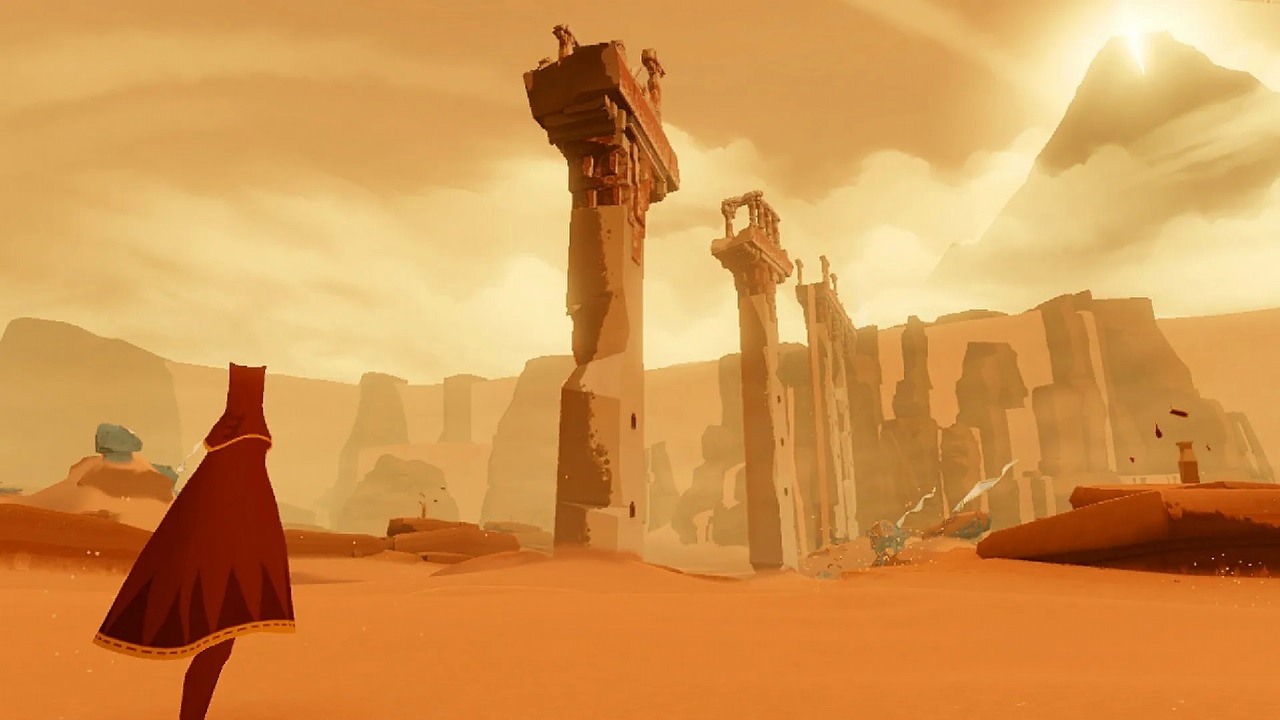Journey Devs Admits Live-service Games are Best for Developers
Co-creator of the iconic Journey, Jenova Chen from thatgamecompany studio, says that working on live-service games is much less stressful than on a classic titles. It also allows for a healthy work-life balance.

There are two types of video games on the market currently - long-lived ones, regularly updated and supported by developers years after their release, and classics, which players mostly shelve after having completed them once. Both have their supporters, butJenova Chen - a game designer who co-founded studio thatgamecompany (which has a portfolio of games such as Journey, Sky: Children of the Light, Flower i flOw) - believes that long-lived games are much better for the developers themselves.
The developer recently gave an extensive interview to GameSpot, in which he talked about the nuances of his work. In his opinion, the prospect of updating a released title for several years after its release is much more comfortable and much less stressful, than the traditional creative process, which assumes that months of work on one game will bear abundant fruit, and that the studio - after a short break - will get down to the next project.
Chen drew this conclusion by comparing work on a title such as Journey - developed traditionally and described by the developer as a "premium game" - as well as the latest work of thatgamecompany, i.e. Sky: Children of the Light, which is being developed as a long-lived game after completing a classic development cycle.
- According to Chen the traditional creative process does not allow for a healthy work-life balance. "If you want to release a game at Christmas," claims the developer, "you have to crunch throughout the entire preceding year. In the case of games developed >>on the fly<<, you can afford an update every month."
- In turn, the prospect of releasing them is supposed to reduce conflicts within the team. It's easier to avoid disputes over what to add to the game and what to cut from it to make it perfect; the question is "when?" rather than "if?" to implement something.
- Chen compared the two ways of developing games to running sprints (the traditional model) and marathons (the game-as-service model). The former, in his view, requires regular rests, while the latter simply requires maintaining a good work pace. This involves significantly less stress and helps reduce burnout.
- Not without significance are also the players, who evaluate the developers' achievements on an ongoing basis, and the fact that thanks to their money the game earns for itself, so the authors are not doomed to the mercy of the publisher and investors. As a result, they can focus on ensuring the quality of a given title.
- "I don't see myself returning to the traditional way of game development," Chen concluded the interview.
GO ON A JOURNEY
Journey often appears in our editorials:
- 19 Great Games for One Evening
- How to Start Playing Video Games? 9 Perfect Games for Beginners
- 8 Beautiful Boring Games
- Time to Relax - 9 Titles to Play if You're Tired
0

Author: Hubert Sledziewski
Has been writing professionally since 2016. He joined Gamepressure.com five years later - although he has known the service since he had access to the internet - to combine his love for words and games. Deals mainly with news and journalism. A sociologist by education, a gamer by passion. He started his gaming adventure at the age of four - with a Pegasus. Currently, prefers PC and demanding RPGs, but does not shy away from consoles or other genres. When he's not playing or writing, he enjoys reading, watching series (less often movies) and Premier League matches, listening to heavy music, and also walking the dog. Almost uncritically loves the work of Stephen King. Does not abandon plans to follow in his footsteps. However, he keeps his first "literary achievements" locked away deep in a drawer.
Latest News
- End of remote work and 60 hours a week. Demo of Naughty Dog's new game was born amid a crunch atmosphere
- She's the new Lara Croft, but she still lives in fear. Trauma after Perfect Dark changed the actress' approach to the industry
- „A lot has become lost in translation.” Swen Vincke suggests that the scandal surrounding Divinity is a big misunderstanding
- Stuck in development limbo for years, ARK 2 is now planned for 2028
- Few people know about it, but it's an RPG mixing Dark Souls and NieR that has received excellent reviews on Steam, and its first DLC will be released soon


